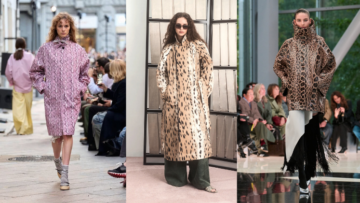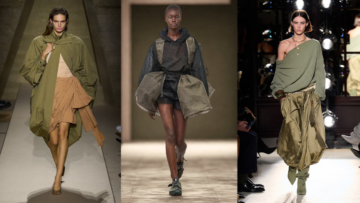Bangladesh’s RMG industry has long been powered by the hands of women—resilient, skilled and quietly determined. Yet, while they’ve carried the weight of production, their journey into leadership has been slow and often invisible. Around the world, women are rising—heading boardrooms, driving innovation and leading with impact. Bangladeshi women are no less capable. In fact, they manage not only machines but entire households, often balancing both with extraordinary grace. But for their potential to truly flourish, they need more than hard work—they need belief. And that belief must begin at home, in the minds of fathers, husbands, brothers and sons who choose to support, encourage and uplift. Because when a man believes in the ambitions of the woman in his life, it doesn’t just change her story—it transforms the future of an entire industry.
A few months ago, I visited the Dhaka Head Office of a prominent manufacturing group—an impressive, modern building housing nearly 150 corporate staff. During the visit, I asked to use the restroom, only to be told that there wasn’t one for women. It was a small moment, yet deeply telling. That’s when it struck me—there were no women working there at all. Not a single female employee in the entire office. It wasn’t the absence of women that shocked me—it was the absence of intent, it was a reflection of an environment where women were never expected to be part of the picture.
A lack of basic infrastructure reflected not just the present gap, but a future that had no room planned for inclusion. That moment stayed with me. If women aren’t even being considered at the design stage, how do we expect them to be present at the decision-making table?
That incident became a trigger. A reminder that no matter how progressive the outer world becomes, real change starts with intentional design—for inclusion, for equity, for leadership.
In comparison to other apparel-exporting countries, Bangladesh falls worryingly behind in women’s representation in supervisory, middle and senior management roles. In Vietnam, women represent nearly 70% of the garment workforce and hold about 25–30% of supervisory positions, often through state-supported skills development programmes. In Sri Lanka, women make up approximately 45% of managerial roles in large export-oriented apparel companies, supported by structured leadership pipelines and inclusion mandates. A standout example is MAS Holdings’ ‘Women Go Beyond’ initiative, launched in 2003, which has empowered over two million women through structured leadership development and gender-inclusive practices.
In Indonesia, with strong textile export capabilities, women constitute over 58% of the apparel sector workforce and around 20% hold merchandising and production planning roles. Public-private partnerships have introduced gender-targeted vocational training, helping women transition from machine operators to team leads.
Turkey presents an even more striking model: women comprise 49% of the textile and apparel workforce and nearly 22% of those are in decision-making and administrative roles. Government-supported mentorship programmes and EU-funded gender inclusion projects have fast-tracked this progress.
Now contrast this with Bangladesh: less than 5% of women in RMG move beyond entry-level roles, and according to a 2023 study by Mapped in Bangladesh and the ILO, only 1 in every 50 line supervisors is a woman. Even more alarming, amongst the factories surveyed, over 70% had zero women in mid-level management and less than 3% had women in senior operational roles.
A McKinsey report stated that companies with gender-diverse leadership teams were 25% more likely to outperform their peers in profitability. Meanwhile, Bangladesh risks losing this competitive edge by not nurturing half of its human capital for growth roles.
These aren’t just gaps—they’re missed opportunities. If we want Bangladesh to remain competitive globally, we cannot afford to let our frontline female workforce stagnate while the rest of the world is preparing them for leadership.
Swisscontact is an independent non-profit development organisation founded in 1959 by leaders of the Swiss private sector and civil society. Its PROGRESS project, is laying down the building blocks of a more equitable industry. PROGRESS aims to elevate women into roles of leadership—not just through capacity building but through inclusive factory-level interventions, skilling and policy alignment. By promoting gender-focused workplace development and breaking traditional stereotypes, PROGRESS is setting a benchmark for what true transformation can look like.
| Around the world, women are rising—heading boardrooms, driving innovation and leading with impact. Bangladeshi women are no less capable. In fact, they manage not only machines but entire households, often balancing both with extraordinary grace. But for their potential to truly flourish, they need more than hard work—they need belief. |
Groyyo Consulting, in collaboration with Swisscontact-under PROGRESS project, is partnering with some of the most forward-thinking factories in Bangladesh to bring Gender Equality and Social Inclusion (GESI) to life on the factory floor. Our collaboration spans across 4A Yarn Dyeing Ltd. (Team Group), NPM Apparels Ltd. (NPM Group), Everbright Sweaters Ltd. (Everbright Group), World Victory Enterprise Ltd., and ST Village Sewing Ltd. These factories have stepped forward not just as participants but as pioneers in redefining what leadership looks like in the RMG sector. Together, we’ve introduced structured Leadership Development Programmes designed specifically for women, enabled gender-sensitive KPI frameworks and initiated women-led production lines that challenge conventional norms. These interventions are already creating visible pathways for women to grow into supervisory and managerial roles— demonstrating that when equipped with opportunity, women don’t just rise—they lead. We are now looking to collaborate with more such progressive factories across Bangladesh to scale these initiatives and co-create a more inclusive, future-ready industry.
With more such projects in the pipeline, the momentum is here. What’s needed now is for factories and stakeholders to support and scale these initiatives. This is no longer just about empowerment—this is about future-readiness.
Several factories in Bangladesh have already taken the first step by dedicating entire production floors to women workers. But inclusion must go beyond presence. These women need pathways— into supervisory roles, line leadership and floor-level decision-making.
Studies have shown that when women lead, factories gain. Women-led production lines often experience better compliance, higher discipline and improved productivity. They also foster a more respectful and resilient work culture. The benefits aren’t just ethical—they’re operational and economic. The case for women in leadership is no longer just an argument—it’s a business imperative.
At Groyyo Consulting, we’ve had the opportunity to observe what real transformation looks like when women are placed in leadership roles on the factory floor. These women don’t ask for favours—they simply want a level playing field. Many of them are already outperforming their peers in output, discipline and dedication. Yet, their growth is often limited not by their ability—but by outdated mindsets.
Our work in Bangladesh and beyond has focused on building gender-sensitive KPIs, inclusive training ecosystems and promotion structures that reward performance, not stereotype. A woman sewing 100 pieces an hour deserves the same pathway to a supervisor’s chair as her male counterpart. Her growth should be driven by her merit, not limited by her gender. Let Bangladesh not only be known for producing quality garments but for producing empowered, skilled women leaders who rise from the very frontline of the industry.







